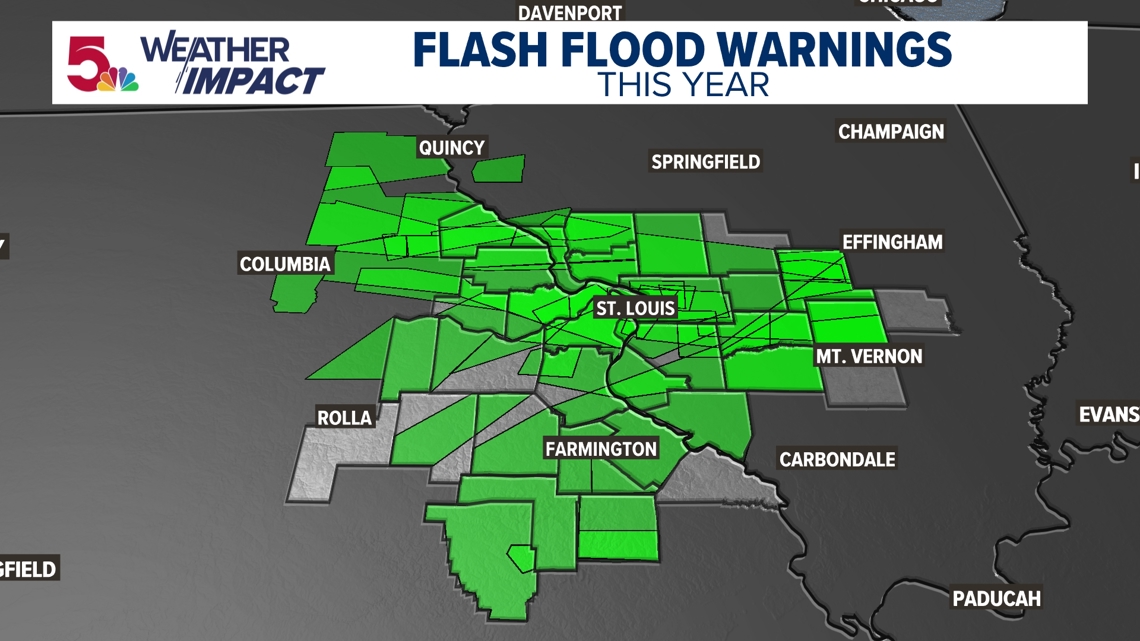There have been a handful of major floods so far this year, but are they more frequent? We asked your questions to the local experts about flooding and climate.
ST. LOUIS — With all of the flooding throughout the country over the last few months, climate change always comes into the forefront when it comes to conversations about why we’re having all this heavy rain. But heavy rain and flooding is nothing new in our area.
To watch the video above in its entirety on your TV, download the free 5+ streaming app on your Roku or Amazon Fire TV, among many other places you can find this.

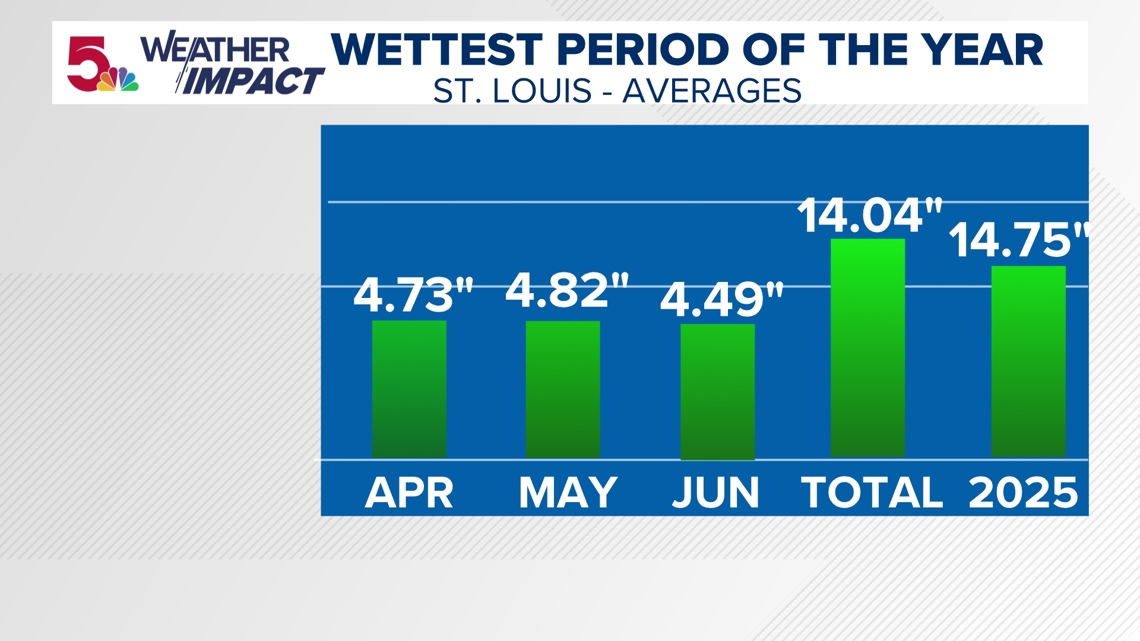
Our wettest period of the entire year comes from April to June. But in July and August, flash flooding starts to ramp up.

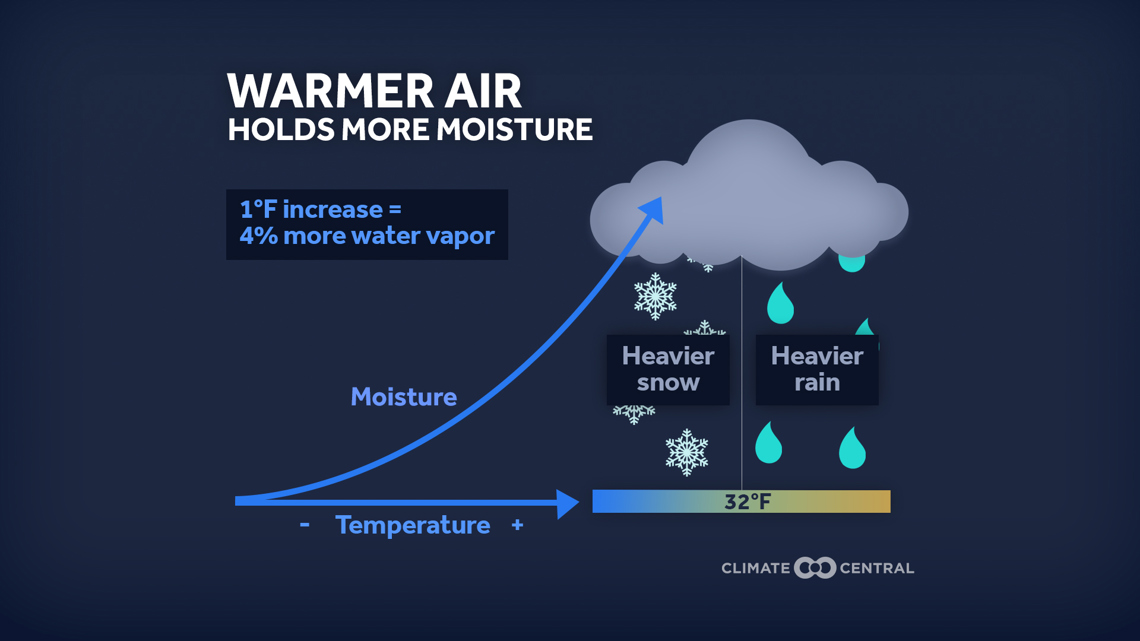
Most of that has to do with the fact that warmer air holds more moisture. July and August are our hottest months, and we see the highest potential for rain during these months anyway. That doesn’t necessarily mean it is caused by anything climate-related, though.

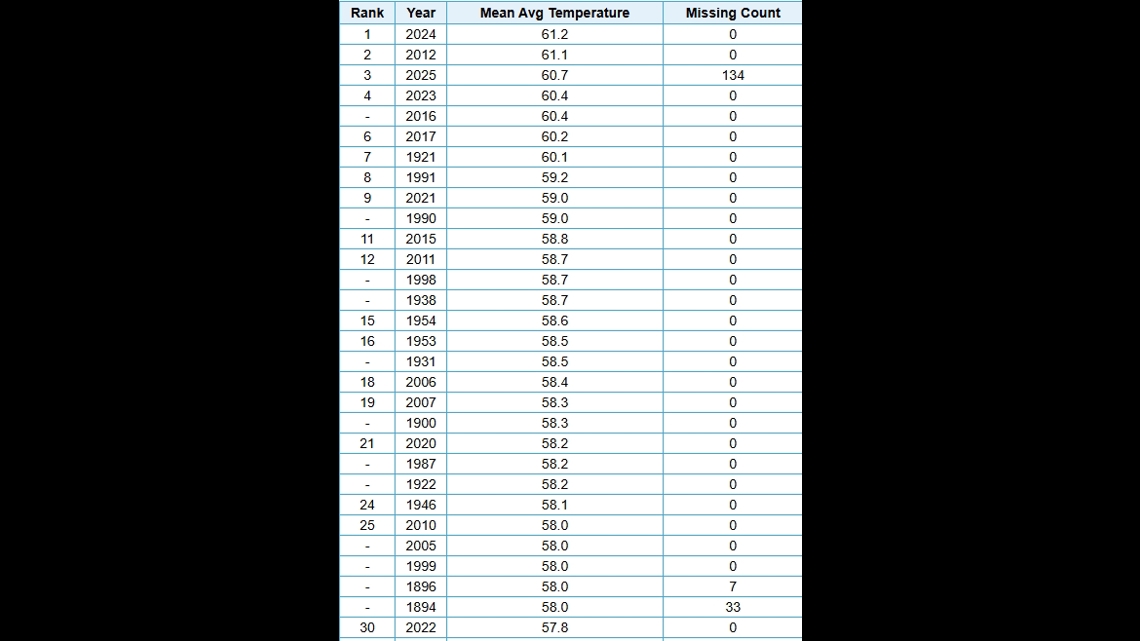
Just glancing at our top 30 warmest years on record above, two out of the last three years have been the warmest on record here in St. Louis. As we noted above, warmer air holds more moisture, so you notice that there have been plenty of years recently with higher potential for more flooding rain, just based on temperature alone.

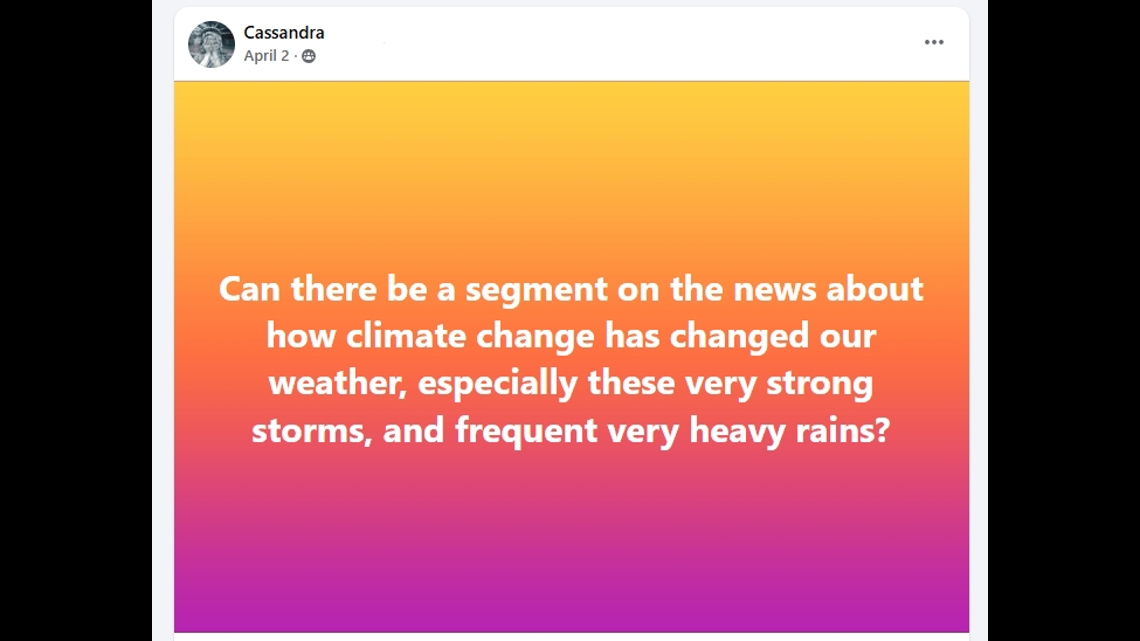
Months ago, a question from our Weather Watchers group on Facebook asked how these two items are correlated: climate change and heavy rain. While we hear about it nationally so often, I thought it was important to find some localized answers from people who have lived here and studied the data. I also wanted to connect with climate scientists nationally to compare how that may line up with what our local meteorologists and climatologists say.
Zack Leasor – Missouri State Climatologist
Zack is an assistant professor in climate science within the School of Natural Resources. He also works as State Climatologist and director of the Missouri Climate Center. He serves on panels dealing with adverse weather conditions such as drought and flooding. He also works with the National Weather Service offices and regional climate services to provide climate data and prepare special summaries of significant weather and climate events.
Mark Fuchs – Senior Service Hydrologist, National Weather Service
Mark works for the National Weather Service in St. Louis as the Service Hydrologist for the local area. This includes eastern Missouri and southwestern Illinois.
Specialties: Meteorology, river forecasting and modeling, multiagency coordination.
Kristina Dahl – Vice President for Science, Climate Central
Kristina Dahl, Ph.D. is the vice president for science at Climate Central. In this role, she leads Climate Central’s scientific activities and helps design analyses that enable people across the world to connect their lived experiences to climate change.
Over the course of her career, Dr. Dahl has researched a range of different climate impacts, from the effects of extreme heat on outdoor workers to the connection between heat-trapping emissions and worsening wildfires. Prior to joining Climate Central, she served as a principal climate scientist at the Union of Concerned Scientists, where her work supported the development of climate-aware public policy at the local, state, and federal levels. In 2023, she was named a TIME100 Next Innovator.

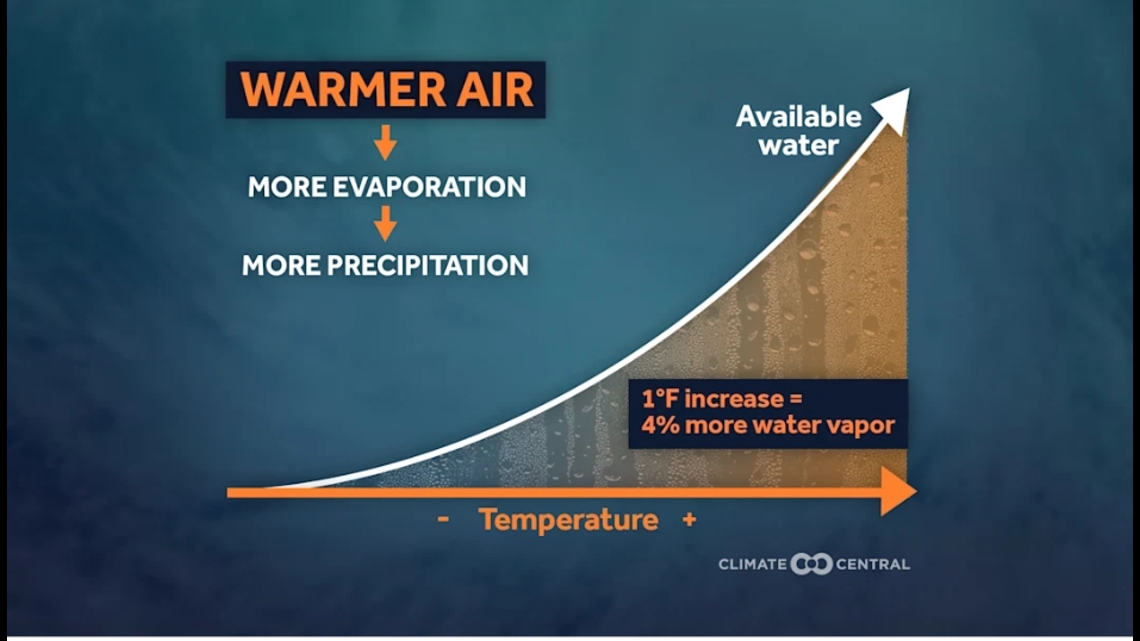
If you don’t take the time to watch the whole video, or want to avoid the topic because you feel like it’s a subject of taboo, let me give you a little synopsis. There is not an immediate conclusion that we have any direct correlation in our region between climate change and more flooding. But it’s not quite as simple as that, because as you will see all three counterpoints in the video interview above, it’s not always such a black and white subject.
There are more variables that go into it, and more levels of research that need to be done. That’s why I thought it was important to tackle the subject and bring differing points of view to give the most neutral look at it objectively. I hope you find it as interesting as I do.
5 On Your Side news app
iPhone | Google Play
To watch 5 On Your Side broadcasts or reports 24/7, 5 On Your Side is always streaming on 5+. Download for free on Roku or Amazon Fire TV.
